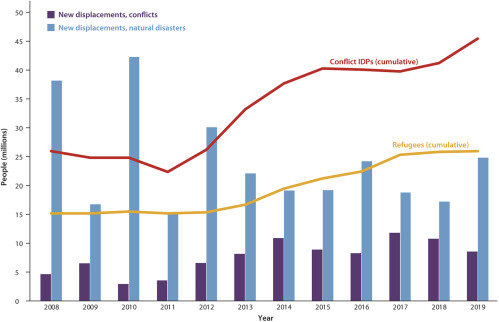Climate change is reshaping the comparative advantage of regions and hence driving migration flows, principally toward urban areas. Migration has multiple benefits and costs in both origin and destination regions. Coordinated policies that recognize how and why people move can reduce future costs and facilitate adaptation to climate change both within borders and internationally.
During the last decade, there has been both academic and industry interest in devising technologically advanced solutions for the improvement of mobility of people with a lower-limb amputation. This is due to the increased number of lower-limb amputees and the fact that the majority of current prosthetic solutions are energetically passive devices that are unable to restore full mobility to lower-limb amputees. This book chapter addresses SDG 10 by focusing specifically on lower limb prosthetics for amputees.
This book chapter advances SDG 15 by bringing current bioremediation techniques together to compare, understand, and effectively apply strategies to exclude inorganic pollutants from contaminated environments, keeping in view the effectiveness and economics of bioremediation strategies.
Proud Experiences hosts a series of podcasts to connect the LGBTQ+ travel community. In the series they explore the modern family, representation and intersectionality. The podcast series advances SDG 10.
This journal article advances SDG 3 and 10 by explaining that racial discrimination has no place in society, and certainly, not in this time of COVID-19 pandemic. As the epicentre of the disease outbreak continues to shift from place to place, urgent measures need to be developed to reduce the increasing cases of racial discrimination.
This book chapter advances SDGs 3 and 17 by reviewing behavioral interventions and strategies for spoken communication for people with dementia and their communication partners.
This book chapter advances SDGs 3 and 17 by reviewing research on a range of rehabilitation programmes aiming to improve the functional independence of people with dementia, such as specialist-led or multimodal rehabilitation, cognitive rehabilitation, function-focused care, and reablement.
Objective: To examine the psychological distress and the associated predictor factors of the 2019 corona-virus disease (COVID-19) on survivors in the early convalescence in Shenzhen. Method: A survey questionnaire consisting of post-traumatic stress disorder self-rating scale (PTSD-SS), self-rating depression scale (SDS), and self-rating anxiety scale (SAS) was presented to COVID-19 survivors still in quarantine. Scores of each scale and subscale were dependent variables in the Mann-Whitney test and stepwise regression analysis.
The dichotomous divide between vegetarians and omnivores seems clear: Omnivores eat meat, whereas vegetarians do not. Yet classifying people dichotomously as vegetarian or omnivorous overlooks a distinct group of people who limit their meat intake but still include some meat in their diets: a group of “mostly vegetarian” dieters called flexitarians (a term combining the words, “flexible” and “vegetarian”).
Entomophagy is increasingly seen as a potential solution to provide a sustainable source of protein. However, the attitude of Western consumers towards insect-based products is generally negative. This study was designed to evaluate the liking of four insect-based snacks among young Italian consumers through a tasting panel involving 62 participants. Two of the products showed the whole insects, while the other two contained insect flour as a main ingredient.

